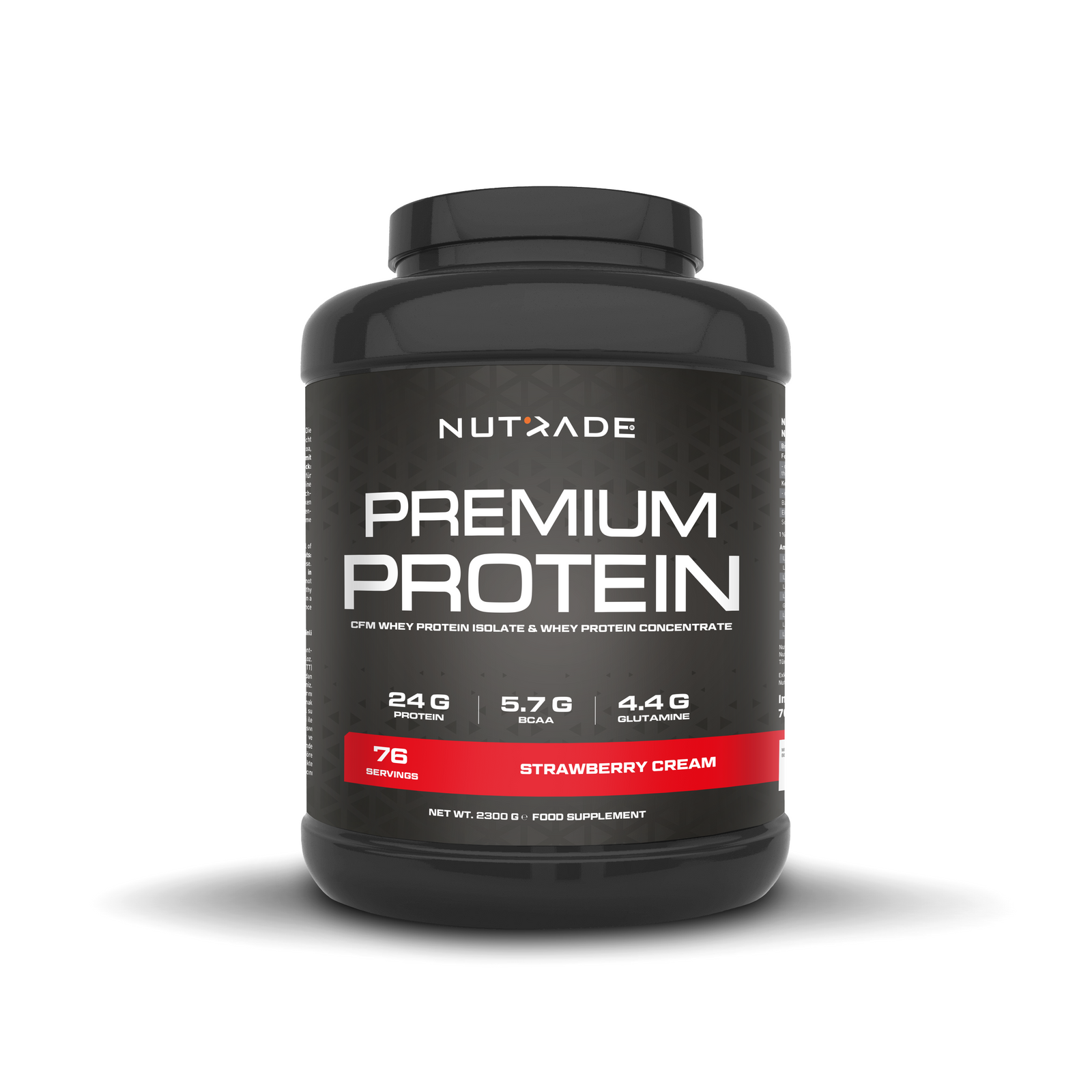WHAT IS PROTEIN?

WHAT IS PROTEIN?
WHAT IS PROTEIN ?
Proteins are organic compounds formed as a result of amino acids bonding to each other in chains. Digestion of proteins begins in the stomach. Proteins consist of 20 types of amino acids.
The sequence of these amino acids determines the functions of proteins. In our body, proteins play an important role in DNA synthesis, cell communication, metabolic activities and many other body functions.
Proteins are divided into two: animal proteins and plant proteins. Animal proteins are found in foods such as eggs, cheese, milk, yoghurt, chicken, meat, turkey and fish. Vegetable proteins are found in higher amounts in plants such as soy, peas, lentils and beans.
WHAT IS PROTEIN POWDER?
Protein powder is one of the most essential supplements. Protein powder contains high concentrations of proteins and therefore the amino acids that the body needs. Protein powders are usually made from milk and are actually a dairy product. They are not harmful chemical products. Apart from this, protein powder can also be produced from sources such as eggs.
Even though protein powder types are different, the raw materials used are generally produced with Concentrated, Isolated and Hydrolyzed raw materials. If we examine these raw materials one by one;
Isolated W hey Protein Powder : Isolated whey protein powder refers to raw materials containing 90% or more protein.
Concentrated W hey Protein Powder : Isolated whey protein powder refers to raw materials containing between 34% and 89% protein. Generally, 70% and 80% protein concentrates are used. An 80% whey protein concentrate contains 80 grams of protein, 5-7 grams of fat and 5-7 grams of lactose. The remaining part is moisture and other trace amounts.
Hydrolyzed Whey Protein : Proteins broken down by enzymes have lower molecular weight. It is digested more quickly in the stomach and absorbed faster. Depending on the degree of hydrolysis, proteins provide faster absorption. Protein powders reduced to 500 and 1000 molecular weights take the form of dipeptides and tripeptides. This is a double and triple chain of amino acids. Dipeptides and Tripeptides provide direct absorption in the small intestine without requiring digestion.
Is Isolated W hey Protein powder faster?
No. Isolate or concentrated whey protein powder is the same speed. Hydrolyzed whey protein powder is faster. Hydrolyzed whey protein powder with a molecule size of 500 daltons is the fastest.
WHAT IS PROTEIN POWDER USED FOR? WHAT ARE THE BENEFITS OF PROTEIN POWDER ?
Proteins, which are among the most important nutrients for a healthy life, are even more essential for athletes.
Increases Muscle Protein Synthesis and Positive Nitrogen Balance: Regardless of triathlon or long-distance running, or weight training such as fitness or weightlifting, metabolic stress occurs at different levels as a result of training.
Our tissues replace worn-out proteins by synthesizing new proteins. The body is in a constant state of destruction (catabolism) and construction (anabolism). If there is sufficient protein in the body, anabolism and muscle protein synthesis occur much more efficiently. Otherwise, symptoms such as destruction and overteining will increase. That's why protein intake is essential.
Growth hormone, growth factors and especially protein sources containing high amounts of Leucine (L-Leucine) increase mTOR activation. mTOR is the hormonal system that controls cellular growth in all mammals.
Proteins help you burn fat. Protein with a high thermic effect (20-30) provides a much higher thermic effect than carbohydrates (5-10) and fat (0-3). This is called diet-induced thermogenesis (DIT).
The purpose of protein powders is to ensure that you get the amount of protein your body needs from an easy and quality source. The amount of protein required daily varies depending on many factors such as the person's age and amount of training. It is recommended that people who do fitness, bodybuilding and weight training take 1.5 to 2 times their weight in protein. This means 120-160 grams of protein for an athlete weighing 80 kilos. You can get this amount from protein-containing foods, amino acids and protein powders.
HOW TO USE PROTEIN POWDER?
The use of Whey Protein powder will generally vary depending on the other supplements you use and your solid food diet. Digestion and absorption times for each food substance are different. The aim here is to set the most accurate intake times and ensure a regular and highest flow of protein and amino acids into the body.
Some sources say that the timing of protein powder is not important, but if you use free form amino acids such as BCAA, Glutamine, Arginine, EAA, or POSTWORKOUT, their timing will allow you to get much less or much higher efficiency from the supplements you use.
Our recommendation is to take free form amino acids such as BCAA, Glutamine, Arginine, EAA, or POSTWORKOUT before Whey Protein or protein powder. You can also take it with meals or as a snack to support meals low in protein. In cases where you cannot meet your protein needs during the day, you can take protein powder when you train on an intermittent fasting type diet.
Remember, your protein needs increase as metabolic stress such as sports, heavy training and illness increases.




Leave a comment